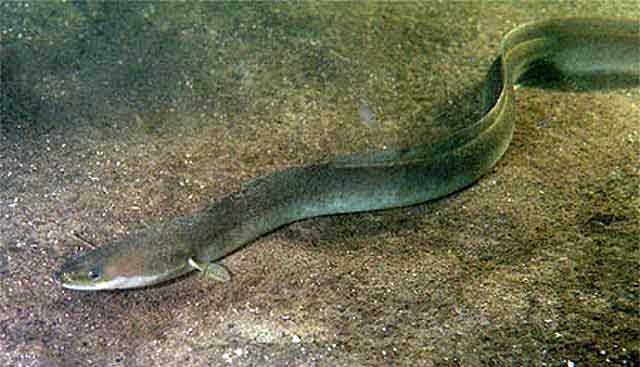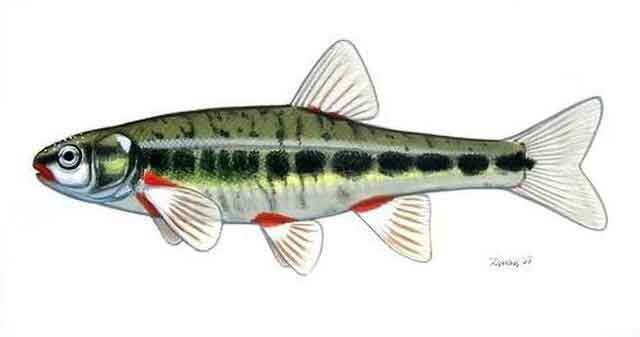Freshwater Fish of the UK: An In-Depth Overview
The UK is home to a diverse array of freshwater fish species, supported by its network of rivers, lakes, and ponds. These aquatic ecosystems not only provide habitats for native species but also accommodate non-native and introduced fish that have become part of the country’s freshwater biodiversity. This essay explores the main groups of freshwater fish in the UK, their ecological roles, conservation challenges, and human interactions.
Categories of Freshwater Fish
Freshwater fish in the UK can be broadly categorized into native species, introduced species, and migratory fish. Each category plays a vital role in the balance of aquatic ecosystems.
Native Freshwater Fish
Brown Trout (Salmo trutta)
Found in rivers, streams, and lakes, the brown trout is highly adaptable. It is prized by anglers and an important indicator of water quality.

European Eel (Anguilla anguilla)
Known for its remarkable migration between UK freshwater systems and the Sargasso Sea, the European eel is critically endangered due to habitat loss, overfishing, and barriers like dams.

Three-Spined Stickleback (Gasterosteus aculeatus)
A small fish commonly found in streams and ponds, this species is known for its distinctive spines and role in scientific research on behaviour and evolution.

Minnow (Phoxinus phoxinus)
These small, schooling fish thrive in clear, well-oxygenated waters and serve as a vital food source for larger predatory fish and birds.

Grayling (Thymallus thymallus)
Known as the “lady of the stream,” grayling thrive in clear, fast-flowing rivers. They are prized by anglers and indicate healthy ecosystems.

European Perch (Perca fluviatilis)
Recognizable by their striped bodies and red-tipped fins, perch are common in rivers, lakes, and canals, serving as important predators in freshwater ecosystems.

Northern Pike (Esox lucius)
A top predator in many UK freshwater systems, pike help control populations of smaller fish and maintain ecological balance.

Dace (Leuciscus leuciscus)
A small, silvery fish commonly found in clean, fast-flowing rivers. Dace are an important food source for predatory fish and birds.

Chub (Squalius cephalus)
A hardy, adaptable fish that inhabits slow-moving rivers and streams. Chub are popular among anglers due to their size and fighting ability.

Bleak (Alburnus alburnus)
A slender, shimmering fish often found in shoals near the surface of rivers and lakes. Bleak play a key role in food chains as prey for larger fish.

Bullhead (Cottus gobio)
A small, bottom-dwelling fish with a flattened head, commonly found in cool, fast-flowing streams. Bullheads are a protected species under European conservation laws.

Gudgeon (Gobio gobio)
A small, benthic fish found in rivers and lakes. Gudgeon are well-adapted to feeding on invertebrates in silty or sandy substrates.

Stone Loach (Barbatula barbatula)
A bottom-dwelling fish that lives in clear, gravelly streams. Stone loaches feed on invertebrates and help maintain the balance of aquatic ecosystems.

Tench (Tinca tinca)
Known as the “doctor fish,” Tench prefer still or slow-moving waters with plenty of vegetation. They are important in coarse fishing and thrive in well-managed habitats.

Roach (Rutilus rutilus)
A common species in rivers, lakes, and ponds, roach are resilient and adaptable, often forming large shoals in diverse habitats.

Common Bream (Abramis brama)
Simply called bream, is native to the UK and widely found in slow-moving rivers, lakes, and canals. It is a schooling fish that thrives in silty or muddy-bottomed habitats. Common bream are popular among anglers and play a role in freshwater food webs by feeding on invertebrates and detritus.

Rudd (Scardinius erythrophthalmus)
Similar to roach but with golden scales and upward-facing mouths, rudd inhabit slow-moving waters and feed on insects and plant material near the surface.

Brook Lamprey (Lampetra planeri)
A primitive, jawless fish that lives in small streams. The brook lamprey is a protected species and an important part of the UK’s aquatic biodiversity.

Spined Loach (Cobitis taenia)
A small, secretive fish that lives in sandy or muddy riverbeds. It is protected under EU law and an indicator of pristine water quality.

Bitterling (Rhodeus amarus)
A rare native fish that has a fascinating symbiosis with freshwater mussels for spawning. Bitterlings

Significance of Native Fish
Native fish species are crucial to maintaining the ecological integrity of UK freshwater ecosystems. They play vital roles in food webs, serve as indicators of water quality, and contribute to the cultural and recreational value of natural waterways.
Introduced and Non-Native Species
Rainbow Trout (Oncorhynchus mykiss)
Introduced for sport fishing, rainbow trout are now a staple in many stocked fisheries. However, they can outcompete native species if not managed properly.

Common Carp (Cyprinus carpio)
An iconic species for coarse fishing, carp were introduced centuries ago. While they enhance recreational fishing, they can disturb ecosystems by uprooting vegetation and increasing water turbidity.

Wels Catfish (Silurus glanis)
An invasive species occasionally found in large lakes and rivers, the wels catfish can grow to massive sizes and impact native species by predation.

Migratory Species
Atlantic Salmon (Salmo salar)
Migrating between rivers and the Atlantic Ocean, salmon are an iconic species in the UK. Conservation efforts focus on improving spawning habitats and removing barriers to migration.

Sea Trout (Salmo trutta)
A migratory form of the brown trout, sea trout spend much of their life at sea but return to freshwater to spawn, contributing to the diversity of UK fish species.

River Lamprey (Lampetra fluviatilis)
An ancient fish species, lampreys migrate between rivers and the sea. They are vital to ecosystem health but are declining due to habitat degradation.

Ecological Roles of Freshwater Fish
Freshwater fish contribute significantly to ecosystem health. Predatory fish, such as pike, regulate prey populations, maintaining a balance in aquatic food webs. Herbivorous and omnivorous species, like roach and rudd, help control algae and aquatic vegetation, influencing water quality. Migratory species, such as salmon, transport nutrients between freshwater and marine ecosystems, supporting biodiversity.
Conservation Challenges
Despite their ecological importance, many UK freshwater fish face threats:
- Habitat Loss: Dams, weirs, and urban development fragment rivers, blocking migratory routes and reducing spawning grounds.
- Pollution: Agricultural runoff and industrial waste degrade water quality, threatening sensitive species like trout and eels.
- Invasive Species: Non-native fish and aquatic plants disrupt native ecosystems by competing for resources or altering habitats.
- Climate Change: Rising temperatures and changing rainfall patterns impact river flows and water temperatures, affecting fish survival and reproduction.
Conservation initiatives, such as habitat restoration, fish passes for migratory species, and pollution control, are critical to mitigating these threats.
Human Interaction and Cultural Significance
Freshwater fish hold economic, recreational, and cultural value in the UK. Angling is a popular pastime, contributing millions to the economy annually. Fish like trout and salmon are celebrated in culinary traditions, while others, like sticklebacks, have inspired scientific discovery. Public awareness and engagement are vital in fostering sustainable management of freshwater ecosystems.
Conclusion
The freshwater fish of the UK are integral to its natural heritage and ecosystem health. From iconic species like the Atlantic salmon to lesser-known minnows and sticklebacks, these fish illustrate the diversity of life that thrives in the UK’s waters. However, they face numerous threats that require coordinated conservation efforts, informed management, and public support. Protecting these aquatic treasures ensures the sustainability of the UK’s freshwater environments for future generations.
